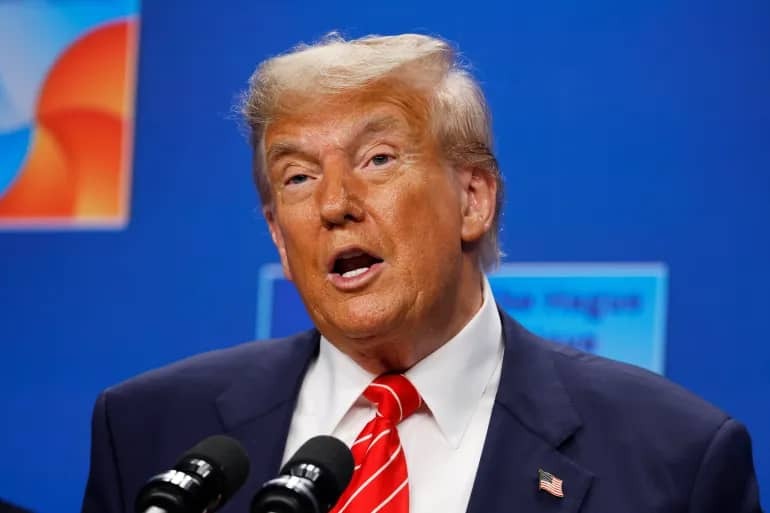The Federal Government is holding talks with authorities of the United States over the military threat by US President Donald Trump.
The Minister of Information and National Orientation, Mohammed Idris, disclosed this during an interview on Sky News.
He revealed that diplomatic channels are proving effective towards rapprochement in the tense relationship between the government of the United States and Nigeria.
“Channels of communication have been opened. I can confirm that we are talking with them, and I think they are understanding the situation better,” Idris said.
“We believe that most of the information is a result of a lack of a proper understanding of the diversity and complexity of the problem we have at hand.”
The minister explained that the Nigerian government has not lost any territory to the Boko Haram terrorists, insisting that the war against insurgency is not conventional warfare.
He alleged that a direct connection exists between a proscribed separatist element and US lobby groups aimed at misinforming US authorities.
“Let me also put it out there that we are seeing a direct connection between (US) lobbyists and (a) proscribed terrorist organisation in Nigeria, and we have seen how they have set up this lobby in the US, contacting high-up people in the United States to help them to lobby.”
The Minister affirmed that the United States government has always supported Nigeria in the fight against terror, saying, this time around, Nigeria is still in need of collaboration to stamp out terrorism.
“What we are saying is that, yes, indeed, the situation is there. We have conflict in Nigeria. We have a security situation in Nigeria, but in the past, the United States government has helped Nigerian authorities to deal with this situation.
“So we are calling on them to partner with us once again, to help push this, and then we have peace once and for all in our country,” said Idris.
Nigeria, he explained, was surprised by some of the numbers coming from the United States and its stance on the issue, adding that the international community must understand the peculiarities of the Nigerian situation.
“We want to tell the world that this is not the case, and to appeal to them that we share the concern of people from our country. We also share the concern of the international community, including the United States, about some of these killings going on. But what we want at this point is an understanding of the diversity and the complexity of the situation.”
Idris also called to question the veracity of the data being widely used in supporting the claim of religious intolerance in Nigeria, saying the data cannot stand scientific scrutiny.
“Some of the assumptions are based on data that largely cannot stand any scientific scrutiny.”
He also maintained that the Nigerian constitution enshrines religious freedom and that the country remains a multi-faith nation, despite the conflict, which he said was not based on religious persecution.
Trump’s Threat
Trump, in an explosive post on his Truth Social platform on November 2, ordered the Pentagon to map out a possible plan of attack in Nigeria, one day after warning that Christianity was “facing an existential threat” in Africa’s most populous country.
In his post, Trump said that if Nigeria does not stem the killings, the United States will attack and “it will be fast, vicious, and sweet, just like the terrorist thugs attack our CHERISHED Christians.”
Two weeks ago, President Trump reiterated his threat of possible military operations in Nigeria over the alleged killings of Christians.
When asked aboard Air Force One if he was considering U.S. troops or air strikes, Trump said, “Could be, I envisage a lot of things.”
The U.S. President’s declaration has since sparked widespread reactions from political and diplomatic circles.

